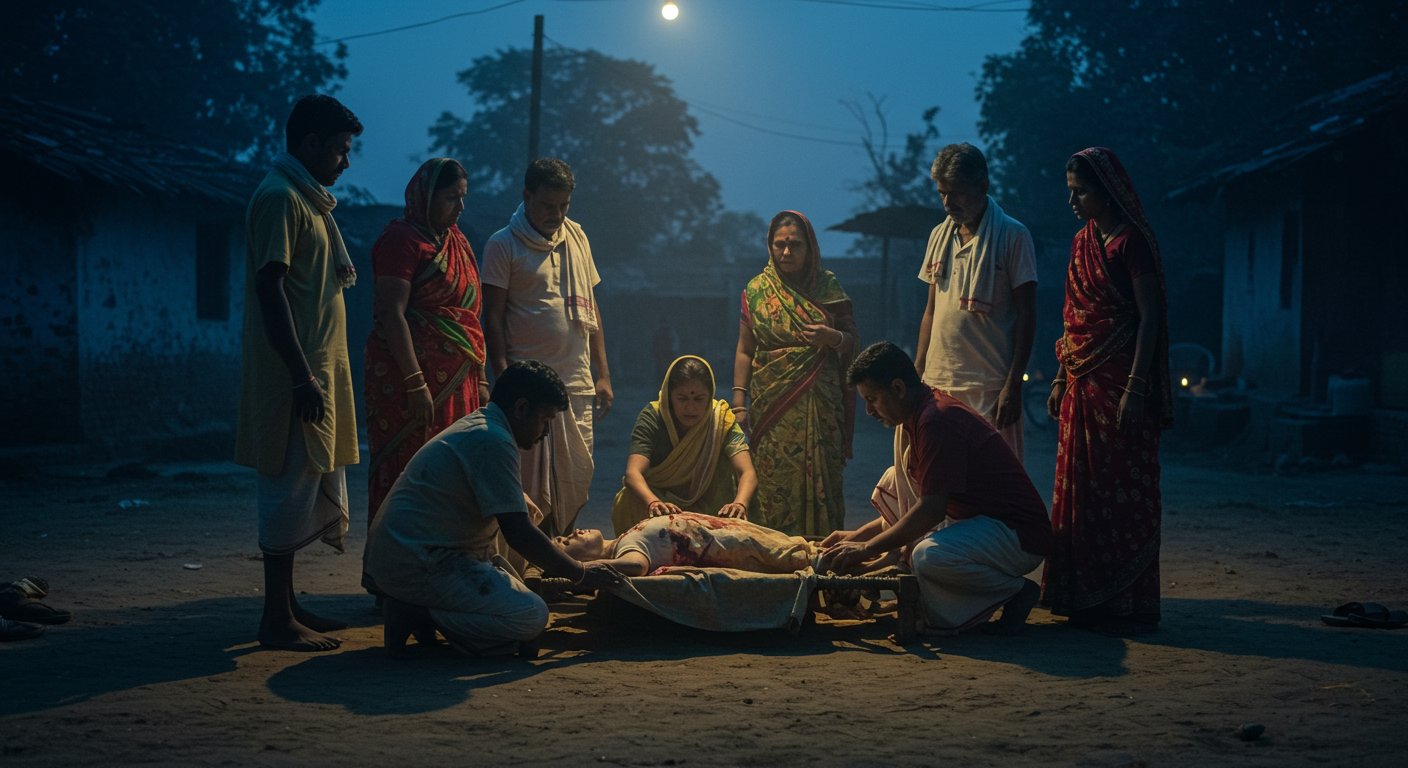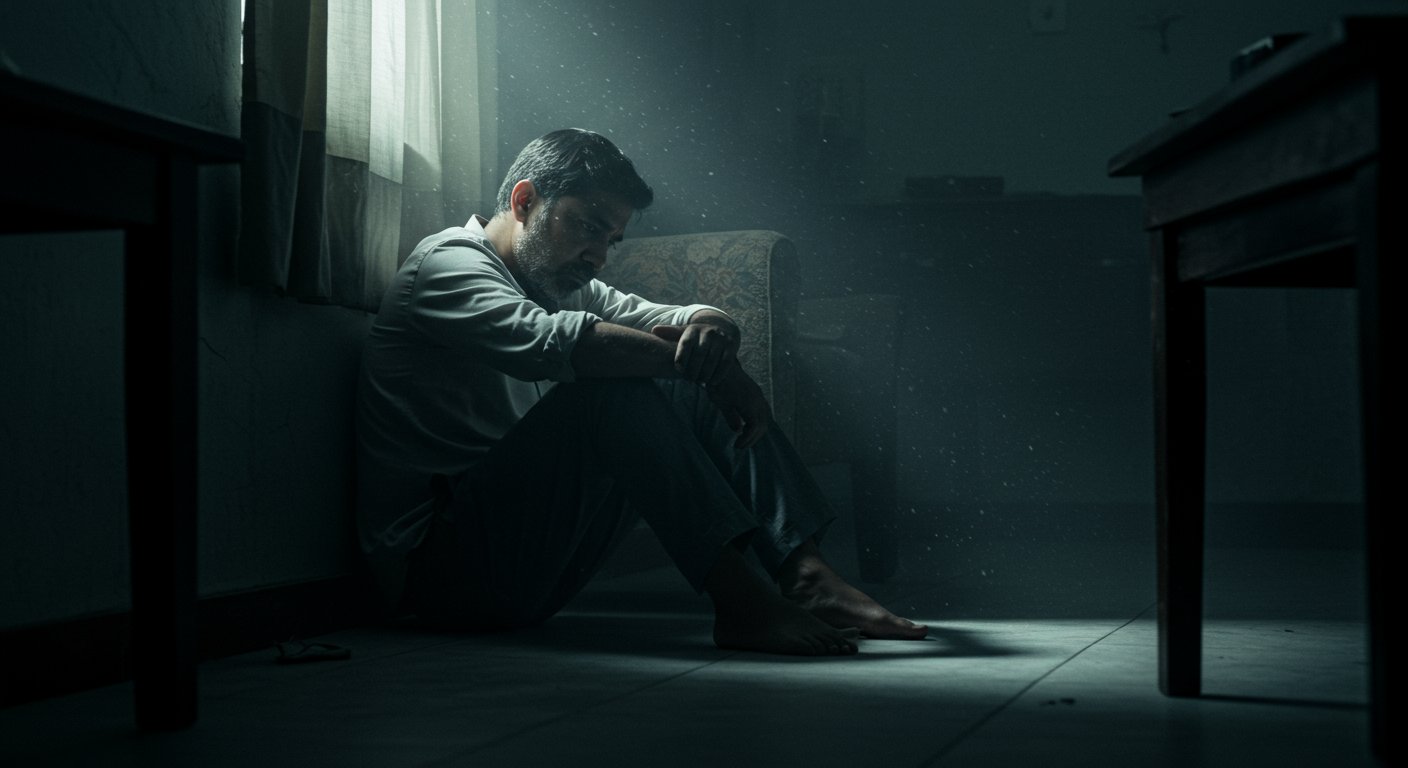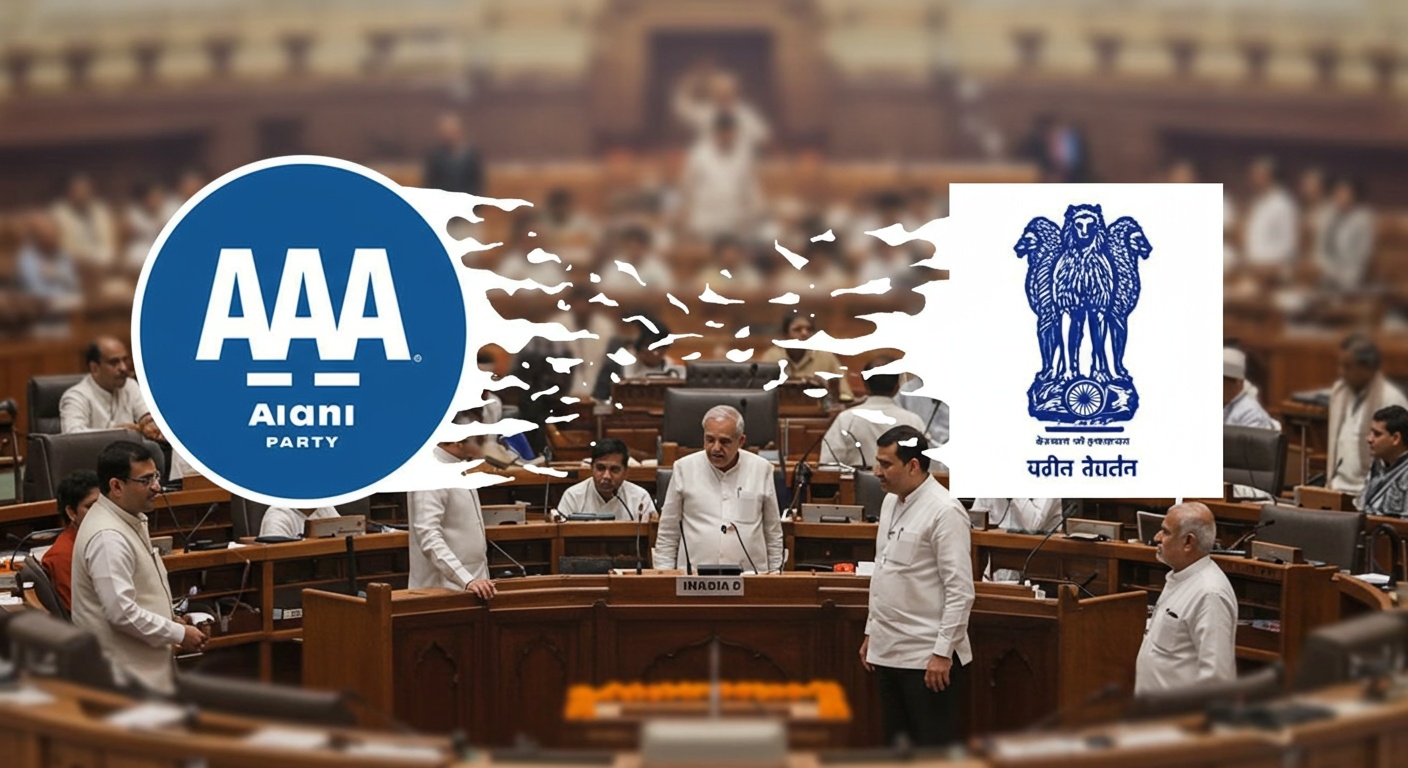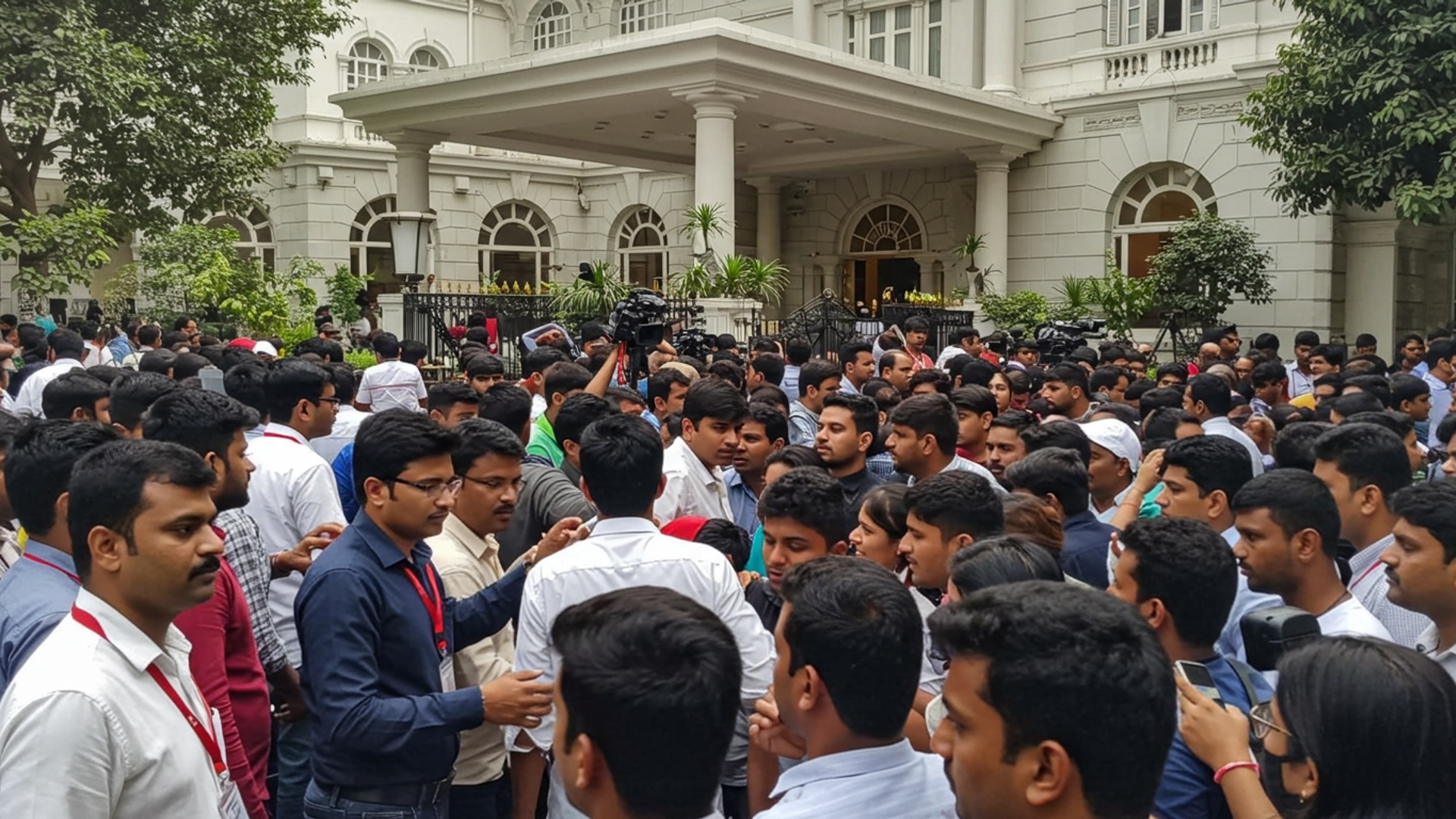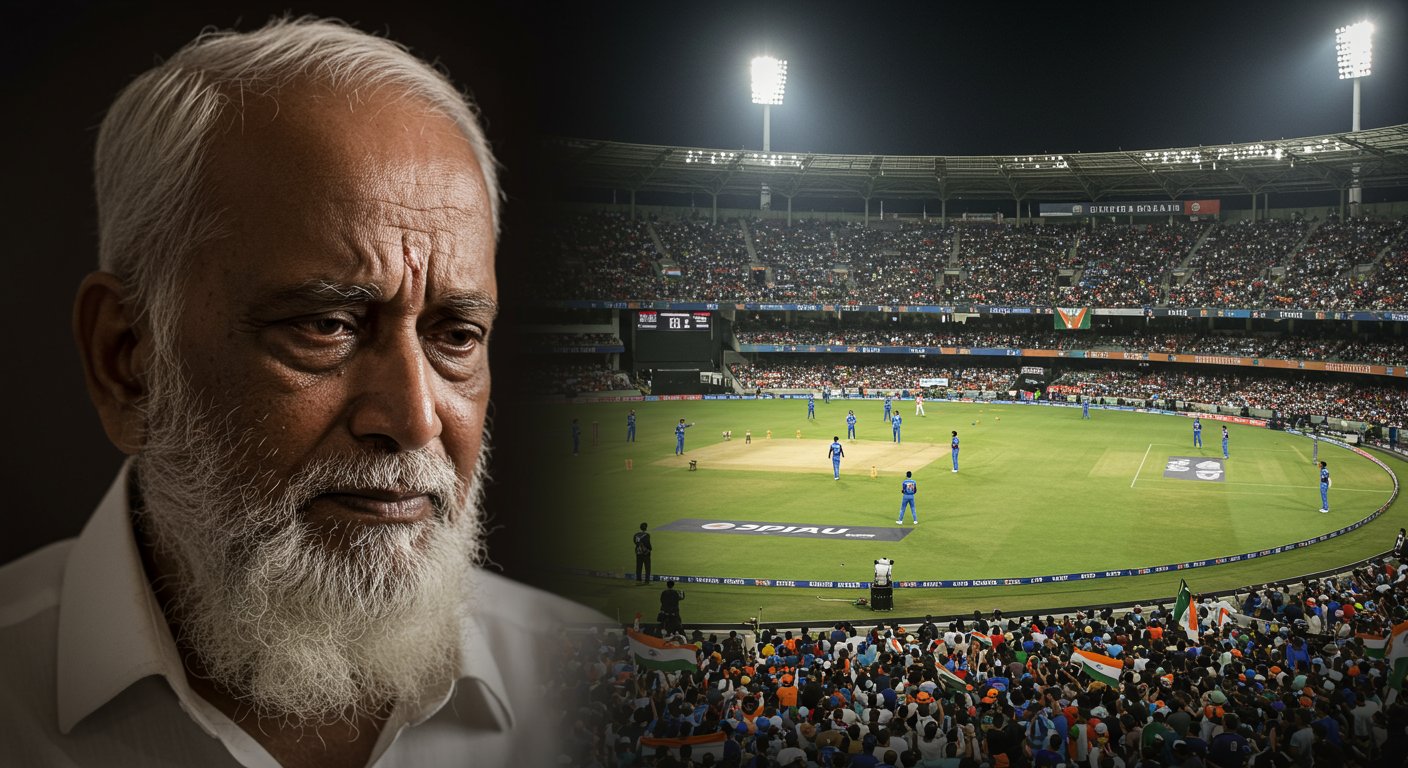Former Maharashtra Chief Minister Uddhav Thackeray recently delivered powerful remarks that immediately captured attention across the nation, directly criticizing India’s first Prime Minister Jawaharlal Nehru and also strongly attacking the proposed State Public Security Bill. These statements, made during a period of close political observation, intensify the ongoing discussion about how history is viewed and raise crucial questions about who watches the government. Thackeray’s clear challenge to both past leadership and current plans for new laws creates a significant new direction, highlighting major disagreements as the state works through new security issues and its core beliefs.
Recent Statements by Uddhav Thackeray
In recent days, Shiv Sena (UBT) chief Uddhav Thackeray has made strong statements regarding national political figures and a new security law in Maharashtra. His remarks have drawn attention from across the political spectrum. On the eve of India’s 79th Independence Day, Thackeray stated that Mahatma Gandhi made a mistake by making Jawaharlal Nehru the Prime Minister of India. This statement was part of a broader political commentary.
At the same time, Thackeray has been a vocal critic of the Maharashtra Special Public Security Bill 2024, which recently passed in the state legislature. He has openly called the bill a “BJP security bill” or “BJP Suraksha Act,” suggesting it is designed more to serve the ruling party’s interests than public safety.
Understanding the Remarks on Nehru
Uddhav Thackeray’s statement about Mahatma Gandhi’s decision to appoint Jawaharlal Nehru as Prime Minister came as a surprise to many. The comment was made on August 14, 2025, during a period of active political discussion. While the exact context leading to this specific remark on Nehru is tied to current political exchanges, it reflects a common line of argument used by some political factions to re-evaluate historical decisions and their impact on the nation’s path. Such discussions often aim to spark debate about India’s post-independence governance and leadership choices. The statement adds a historical dimension to the ongoing political discourse in the state and the country.
Concerns about the Public Security Bill
Thackeray has expressed deep concern about the Maharashtra Special Public Security Bill 2024, which has been cleared by both the Maharashtra Assembly and Legislative Council in July 2025. He argues that the ruling government is “misusing its majority” to pass such a significant law. He warned that the new law could be used to arrest ordinary citizens and put them in jail, comparing it to older strict laws like the Maintenance of Internal Security Act (MISA) and the Terrorist and Disruptive Activities (Prevention) Act (TADA).
A key point of Thackeray’s criticism is that the bill’s wording is vague, especially regarding “unlawful activity.” He stated that while the government claims the bill aims to end Naxalism and terrorism, these specific terms are not mentioned in the bill itself. Instead, it refers broadly to “left-wing extremist ideology.” Thackeray questioned the need to define “left” and “right” ideologies when the Indian Constitution emphasizes ideals like equality, social justice. individual freedom.
“This bill should be called the ‘BJP security bill’ instead of the public security bill, as they believe speaking out against the BJP is tantamount to criticising the country. Currently, we don’t support this bill,” Thackeray told reporters.
He further stressed that criticizing the ruling party should not be considered “anti-national.” Thackeray clarified that while he supports government action against genuine threats to the country, he opposes bills that appear to be politically motivated or allow for arbitrary arrests based on unclear charges.
What the Public Security Bill Means
The Maharashtra Special Public Security Bill 2024 was passed by the state assembly on July 10, 2025. by the legislative council on July 11, 2025. It is designed to stop illegal activities by Left Wing Extremist (LWE) groups and similar organizations, especially “urban Naxalism.” The state government introduced this bill because it believes Naxalism has spread beyond remote areas into cities, with various groups providing support to armed members. current laws are not enough.
The new law gives the state power to declare any organization “unlawful.” It defines four types of crimes punishable under this law:
- Being a member of an unlawful organization.
- Collecting money for an unlawful organization, even if not a member.
- Managing or helping manage such a group.
- Doing unlawful activities.
For these crimes, people can face jail time of two to seven years and fines ranging from 2 lakh to 5 lakh rupees. Doing an unlawful activity carries the toughest punishment: seven years in prison and a 5 lakh rupee fine. All crimes under this law are serious (cognizable) and people cannot get bail easily (non-bailable).
The bill defines “unlawful activity” broadly. It includes actions like speeches, writings, or signs that upset public order, stop law enforcement or government work, or involve using force or threats against public servants. It also covers promoting violence, calling for people to disobey laws. raising money for such acts.
Once a group is declared unlawful, officials can take control of places used by them, remove people from those places, take away movable property. freeze or seize their bank accounts and money. The bill limits the power of courts to review these actions, allowing appeals to the High Court only for the declaration of an unlawful organization or the seizure of funds.
Concerns have been raised by civil society groups that the bill’s definition of “unlawful activities” is too wide. They argue it could limit freedom of speech and expression. may not follow fair legal procedures. These groups also point out that the Advisory Board, which reviews the decision to declare an organization unlawful, may not be truly independent from the government. Critics also question the need for this new law when existing laws like the Unlawful Activities (Prevention) Act (UAPA) and the Maharashtra Control of Organised Crime Act (MCOCA) already exist.
But, the bill underwent changes based on suggestions. The revised version now specifically aims to prevent illegal actions linked to left-wing ideas, to avoid misuse against political or social groups. It also requires an Advisory Board to be formed before an organization can be declared unlawful. the rank of the officer in charge of investigations has been raised to Deputy Superintendent of Police.
Other Leaders Respond
The Maharashtra Special Public Security Bill has created a division among political leaders. Revenue Minister Chandrashekhar Bawankule, a senior leader from the BJP, criticized Uddhav Thackeray for opposing the bill. Bawankule, who led the committee that drafted the bill, stated that the committee had unanimous support, including from opposition members.
“Uddhav Ji, please for once think for Maharashtra’s benefit. Think of our youth who will benefit from this bill,” Bawankule said, adding that “generations will be saved because of this law. the entire Naxal system will collapse.”
Bawankule insisted that the opposition to the bill is merely “political.” He claimed that the bill is not against any political party but against movements that lead young people towards the Naxalite movement. He also mentioned that over 12,000 citizens provided feedback on the draft, which was put in the public domain.
On the other hand, other opposition leaders, including those from the Nationalist Congress Party (SP), the Communist Party of India (CPI). the Communist Party of India (Marxist), have joined Uddhav Thackeray in protesting against the bill. They have called for unity among opposition parties to fight against the proposed law. Supriya Sule, a Member of Parliament from NCP (SP), agreed with Thackeray on the need for opposition unity.
Political Landscape in Maharashtra
The recent statements by Uddhav Thackeray and the passing of the Maharashtra Special Public Security Bill 2024 highlight the ongoing political tensions and power dynamics in Maharashtra. The Shiv Sena (UBT), led by Thackeray, is currently in opposition to the ruling Mahayuti government. The debate over the security bill is not just about law and order but also about control, dissent. political targeting.
The ruling government, with its majority, was able to pass the bill despite opposition protests and walkouts. This shows the government’s ability to push through its legislative agenda. But, the strong resistance from the opposition, including public protests, indicates a continued struggle over policy and political rights.
The opposition’s argument that the bill could suppress dissenting voices and target those critical of the government is a central point of contention. This situation points to a larger national discussion about balancing security needs with civil liberties and democratic rights. The political climate in Maharashtra remains charged, with significant debates expected to continue on issues that shape the state’s future and its democratic processes.







